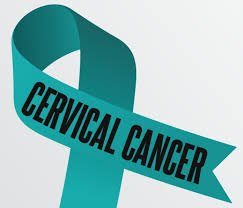
Dr Dale Garred, our new female GP at Manly Village Medical discusses what you need to know about the new screening program.
What is the new test?
The new test, looks for the presence of Human Papillomavirus (HPV) in cervical cells.
The Human Papillomavirus causes 99% of cervical cancers. It is transmitted via skin contact during sexual activity. Unlike the old traditional Pap Smear test which looked for precancerous changes in cervical cells, the new test looks DIRECTLY for the presence of the human papillomavirus (HPV), which actually CAUSES these changes in the first place. We can now detect the presence of HPV, LONG BEFORE it starts to cause precancerous changes to the cells. The time from HPV infection to the development of cancerous cervical changes is usually 10-15 years. This is why we can now safely screen every 5 years rather than every 2 years.
How is the new test performed?
For women having their cervical screening test, the test itself will be carried out in the same way. A vaginal examination will be performed and a painless sample from the cervix will be collected by your doctor.
When is my next pap smear due?
If your last pap smear was performed prior to the 1st of December 2017, then your next pap smear will still be due 2 YEARS from the date of your last test, provided you are over 25 years of age on this date. Once you have had a cervical screening test using the new screening protocol, provided HPV is not detected, your next test will not be for 5 years.
- If you are under the age of 25 when your next pap smear is due, OR
- If you have had previous abnormal smears, OR
- If you are experiencing symptoms such as discharge or a change in bleeding…
… then you should discuss the timing of your next test with your doctor.
What age should women start having the cervical screening test?
Traditionally women have started having pap smears approximately 1 year after becoming sexually active. With the new cervical screening program, women will not need to start cervical screening until 25 years of age, UNLESS they became sexually active before the age of 14. For women whose sexual debut was prior to age 14, cervical screening should commence between the age of 20 to 24.
What if my screening test detects the presence of HPV?
A positive result on the new cervical screening test means that HPV has been found in your sample. All abnormal results should be discussed with your doctor to decide on the management plan most appropriate for you. You may need increased surveillance or you may require a referral to a specialist to have further testing.
Do I still need screening if I had the HPV vaccination?
The HPV vaccination (also known as the Gardasil vaccine) directly targets the strains of HPV most responsible for causing cervical cancer. It does not however, protect against ALL strains that can cause cancerous cervical changes, and so whilst the vaccination helps to reduce your risk of cervical cancer, it is STILL recommended that women undergo regular cervical screening EVEN IF they have received the full course of the HPV vaccine.
When can I stop having cervical screening?
If you have had a negative cervical screening result (i.e. No HPV detected) between the age of 70 and 74, then you will not be required to have any further screening.
All of our GP doctors regularly perform cervical screening tests on our patients. Cervical Screening Appointments can be made by telephoning our reception on 3396 2141 or by booking online here.
